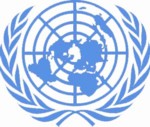 UNITED NATIONS: The UN Security Council renewed diamond and timber sanctions on Liberia for another six months and asked an expert panel to take a fresh look at the bans by June 7.
UNITED NATIONS: The UN Security Council renewed diamond and timber sanctions on Liberia for another six months and asked an expert panel to take a fresh look at the bans by June 7.In a resolution adopted unanimously, the council also extended an arms embargo for another year in the West African nation, founded by former American slaves.
A panel of experts established by the 15-nation council recommended on December 9 that the sanctions stay in place.
It cited the ''chronic corruption and incompetence'' of a transitional government set up at the end of a civil war in 2003 when then-President Charles Taylor was forced into exile in Nigeria.
''Should sanctions be lifted on diamonds and timber there is little reason to believe that government revenue will be directed to the budget to be used for the benefit of the Liberian people,'' the panel said.
The transitional government loses power in January when a new government, headed by Ellen Johnson-Sirleaf, a former UN and World Bank official, takes over. She won the first elections since the end of the war, in which a quarter of a million people died.
Johnson-Sirleaf has vowed to stamp out corruption in a country of 3.2 million people that is still without running water or electricity or schools and hospitals that function properly, more than two years after the guns fell silent.
Yesterday's resolution called on Johnson-Sirleaf to reform existing logging concessions and commission ''independent external advice'' to manage Liberia's diamond resources.
Bans on diamond, weapons and timber exports were imposed between 2001 and 2003 after the Security Council accused Taylor of fueling war in neighboring Sierra Leone, through an illicit gems-for-guns trade.
But despite the ban, diamonds are easily smuggled out of Liberia. Buyers from as far away as North America freely told Reuters in Monrovia of their smuggling activities.
''Most of the quality -- about 80 per cent -- is low,'' one dealer said, displaying a handful of diamonds that he said he planned to smuggle to Belgium.
''But of the other 20 per cent, you get some good stones and some can go for 200,000 dollars,'' he said.
The London-based advocacy group Global Witness said in a recent report that Liberia's transitional government and the United Nations peacekeeping mission in the country had failed to control the exploitation of Liberia's natural resources.
''The result has been an explosion of illegal diamond mining activities by a large number of ex-combatants leading to violations of the UN sanctions and a significant security risk,'' Global Witness said.
''With regards to timber, pit-sawing activities by ex-combatants continue unabated, generating large amounts of uncontrolled and unaccounted revenue,'' the group said.



